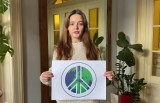Basel, January 6 2020 - The winner of a new award for youth action on climate, peace and disarmament, the Peace and Climate action of European Youth (PACEY) Award, will be announced on January 9, 2020 at an international event in Basel that is bringing youth leaders and policy makers together to address these existential threats to humanity.
‘Young people in Europe and around the world are standing up to demand action on climate change, war and nuclear weapons,’ says Prof Dr (med) Andreas Nidecker, founder of the PACEY Award. ‘They clearly see the threats to current and future generations, and are calling on city leaders and governments to take action to avert a catastrophe. It’s time we heeded their warnings and listened to their ideas.’
The award will support a European youth project which advances effective policy action to cut carbon emissions, enhance the transition to renewable energies, address and resolve international conflicts, abolish nuclear weapons, reduce weapons budgets and investments, and/or support the United Nations Sustainable Development Goals.
A range of youth projects have been submitted. Those short-listed for the award include youth sailing for climate action from Latin America to Europe, a youth peace mural project in the Ferizaj region of Kosovo, a youth-led project focusing on keeping fossil fuels in the ground, and a peace-building project between youth from different ethnic communities in the Mitrovica region of Kosovo involving creating community gardens together.
The winner will be decided by the participants of the roundtable event Climate, peace and security: From youth voices to policy action, being organised by the Basel Peace Office and the World Future Council. The event is being held in conjunction with the annual Basel Peace Forum which is organised by swisspeace. Both events are support by the President’s Department of the Basel-Stadt Kanton.
‘A key focus of the roundtable event and the award is to highlight connections between climate action, peace and disarmament, especially nuclear disarmament,’ says Marzhan Nurzhan, Deputy Director of the Basel Peace Office. ‘Armed conflict, and preparation for armed conflict, contribute significantly to global carbon emissions. And if nuclear weapons are ever used in war the climatic and humanitarian consequences would be cataclysmic.’
‘Excessive militarism is also consuming the human, scientific and financial resources required to protect the climate and make the transition from fossil fuels to renewable energy,’ says Alyn Ware, Global Coordinator of Parliamentarians for Nuclear Non-proliferation and Disarmament, one of the co-sponsors of the event. ‘Imagine what could be done for the climate and sustainable development with $100 billion – which is the amount spent annually on nuclear weapons and which is just 7% of the global military budget.’
Youth today are starting to look at how budgets, subsidies and investments in fossil fuels and weapons production are supporting these industries and subverting progress for peace and the climate,’ says Thies Kátow, nuclear weapons and fossil fuel divestment researcher for the World Future Council. ‘And they are leading some of the fossil fuel and nuclear weapons divestment campaigns. Governments, pension funds and other investors need to join these campaigns in order to impact sufficiently on the fossil fuel and nuclear weapons industries and thus to become a catalyst for change.’
‘Policy-makers need to open the doors of decision-making to youth,’ says Samia Kassid, World Future Council Senior Project Manager on the Rights of Children and Youth. ‘By including youth in the development and implementation of legislation and policy, we ensure that their rights, and the rights of future generations, for a peaceful and sustainable planet are incorporated in planning.’
The roundtable event will premiere a video Youth voices on climate, peace and disarmament, which features young Europeans speaking about these issues. ‘In order to protect the climate, we need to find ways of being active and making our voices heard without significantly increasing our travel – especially air travel,’ says Chaimae Sebbani, Basel Peace Office youth coordinator and producer of the video. ‘We are therefore bringing the voices of many European youth to the Basel roundtable event – and to policy-makers – via statements which we are compiling in this video.’ The video will also be presented to participants of the Basel Peace Forum on January 10 at a pavilion on Inter-generational interaction for peace and the climate.
Click here for the program of speakers at the roundtable event.
